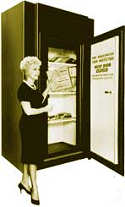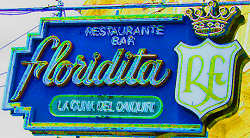 In today’s Federal Register, the Bureau of Industry and Security (“BIS”) published a decision by an Administrative Law Judge finding William Kovacs in default in responding to a charging letter, fining him $66,000, and suspending his export privileges for five years. The decision resulted from a motion for default filed by BIS on January 11, 2007.
In today’s Federal Register, the Bureau of Industry and Security (“BIS”) published a decision by an Administrative Law Judge finding William Kovacs in default in responding to a charging letter, fining him $66,000, and suspending his export privileges for five years. The decision resulted from a motion for default filed by BIS on January 11, 2007.
The facts relating to Mr. Kovacs are not particularly savory. Mr. Kovacs had applied for a BIS license to export an industrial furnace to the Beijing Research Institute of Materials and Technology. BIS denied the license on the ground that BRIMT was likely to use the furnace for the design, development, production or use of missiles. Undeterred Mr. Kovacs and BRIMT agreed that the furnace would be shipped to a “new” customer in China who would, in fact, be BRIMT under a different name. This was, as they say, just asking for it.
The ALJ opinion doesn’t, however, tell the full story as to why Mr. Kovacs might have been in default when BIS filed the Motion for Default on January 11, 2007. That may well have been because Mr. Kovacs was in jail serving a sentence imposed on October 5, 2006, for a criminal conviction arising from the export of the furnace to BRIMT. Granted Mr. Kovacs wasn’t in jail when the charging letter was sent by BIS on June 28, 2005, but that meant that BIS had plenty of time to bring the motion for default while Kovacs still had some opportunity to respond in person. There is also nothing in the decision to indicate that BIS provided a copy of the motion to Mr. Kovacs at his prison address even though BIS certainly did know where to find him.
Kovacs doesn’t seem a particularly sympathetic defendant, but that is still not a reason for BIS not to play fair with him.

 Posted by
Posted by  Category:
Category: 

 Yesterday the Bureau of Industry and Security (“BIS”) published in the Federal Register an
Yesterday the Bureau of Industry and Security (“BIS”) published in the Federal Register an 
 The
The 

